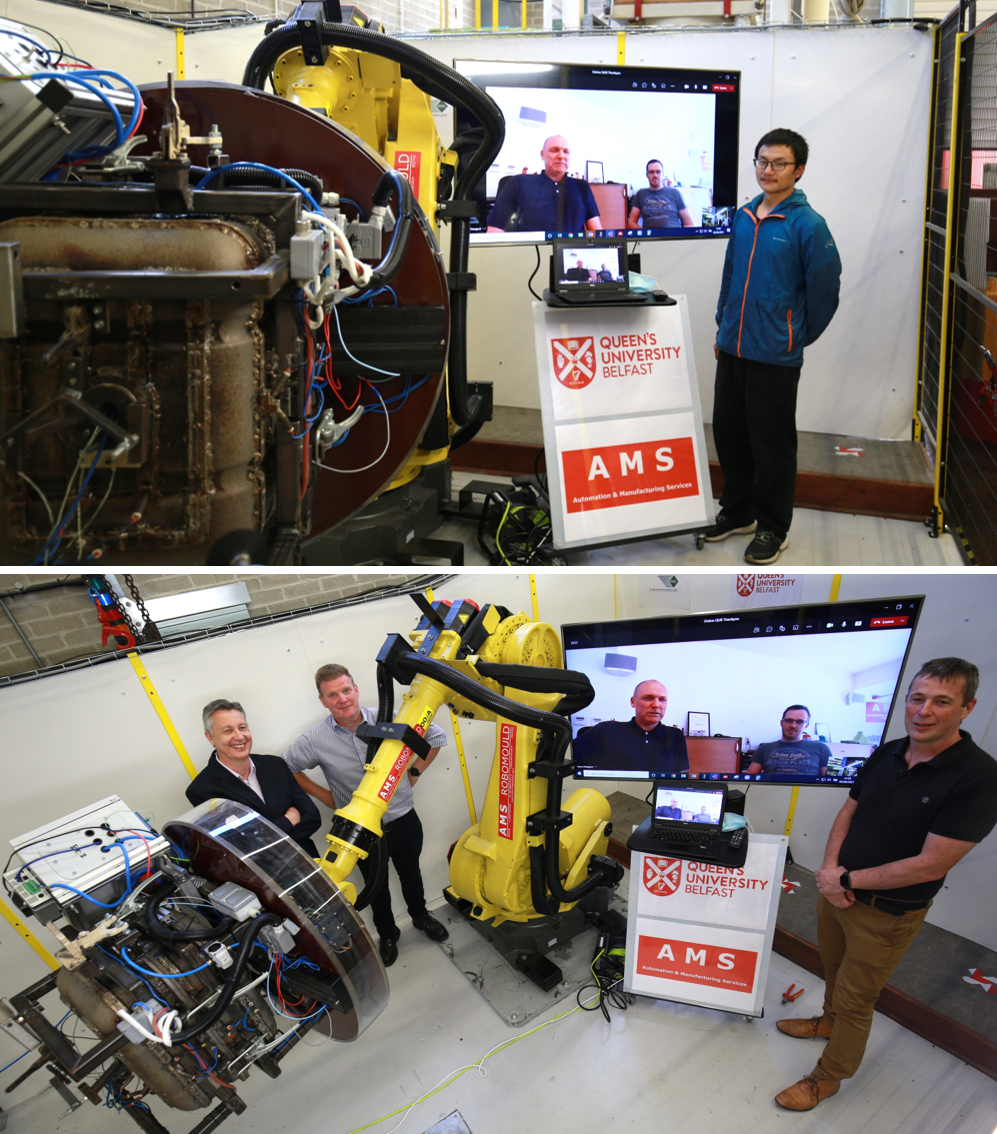CITI-GENS researcher celebrates installation of industry robot-based rotational moulding machine
CITI-GENS Early Stage Researcher (ESR) Hangtian Zhou took part in an online meeting with AMS to celebrate the installation of ROBOMOULD which will form a key part of his research project.
A New Advanced Robotic Platform for a CITI-GENS Research Project
An online event was held to celebrate the successful installation of ROBOMOULD, an industry robot-based rotational moulding machine, at the Advanced Rotational Moulding Automation Cell (ARMAC) of the Polymer Processing Research Centre (PPRC). This ROBOMOULD system has been donated by Belgium company AMS for research and education purposes, and is the main part of the ARMAC cell. It is the only facility of its kind outside of Belgium. All the staff from Queen’s University Belfast met, with Johan Potargent (CEO) and Robin Van De Put (Robot Engineer & Project Manager) from AMS remotely.
The ROBOMOULD system will be the main research platform for the CITI-GENS project "Innovative Energy Saving Process for Advanced Manufacturing" to be undertaken by Hangtian Zhou. This project is focused on exploring autonomous process control for rotational moulding to cut cycle time, save energy and reduce the carbon footprint. Rotational moulding is a widely applied plastic forming technology for producing large hollow plastic parts. A wide variety of products are produced by rotational moulding, like storage tanks, planters, pet houses, toys, bins and refuse containers, and kayaks, etc. More accurate control of the temperature and motion will be achieved on this robot-based system, with much larger potential for improving the existing process.

Top: Johan Potargent, CEO of AMS (Left), Robin Van De Put, Robot Engineer & Project Manager (Middle), and Hangtian Zhou, CITI-GENS ESR (Right) Bottom (L-R): Peter Martin, Director of PPRC & CITIGENS Project Supervisor, Mark Kearns, Mould Manager, Johan, Robin, and Mark McCourt, Research Fellow